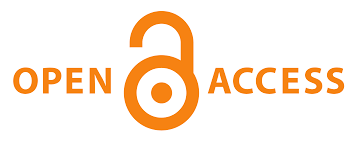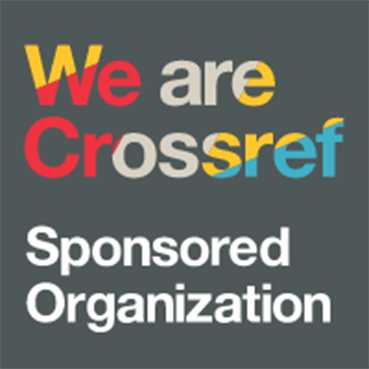A Comprehensive Review of Kangguru International Education Service (KIES) Course: An Evaluation of Its English Language Program
DOI:
https://doi.org/10.47766/jetlee.v3i2.1455Keywords:
KIES, Evaluation, program, EnglishAbstract
As a consequence of globalisation, there is a growing desire for people to be able to communicate effectively in English, which has led to the expansion of private English language learning institutions. This study provides an analysis and evaluation of Kangguru International Education Service (KIES), a private English language course/school located in Aceh province. This study utilises an interview with the institution's manager to conduct a SWOT analysis on KIES, which examines the company's strengths, vulnerabilities, opportunities, and threats. KIES offers a variety of English language learning programmes and maintains international ties with other institutions to ensure the institution's continued growth and success. The research demonstrates KIES's capacity to contribute to the expansion of English language proficiency in Aceh province and reveals the significance of private English learning institutions.
References
Abdul-Hamied, A. (2001). English language education in Indonesia. Paper presented at the East-West Center and Ohana Foundation Workshop, East-West Center, Honolulu, Hawaii, 16-17 February.
Alwasilah, A. C. (1997). Politik bahasa dan pendidikan (Language Politics and Education). PT Remaja Rosda Karya, Bandung.
Andrian, R., Azhari, T., Akmaliyah, N., Trisnawati, I. K., & Muntasir, M. (2019). Overseas Education: The Perspective of the Acehnese Scholarship Applicants. Proceedings of AICS-Social Sciences, 9, 23-27.
Hamied, F. A. (2012). English in multicultural and multilingual Indonesian education. English as an international language in Asia: Implications for language education, 63-78.
Huda, N. (1993). Reorientation in the objectives of ELT in secondary schools in Indonesia. In Bird, N., Harris, J., & Ingham, M. (Eds.). Hong Kong: Institute of Language in Education.
Hyett, N., Kenny, A., & Dickson-Swift, V. (2014). Methodology or method? A critical review of qualitative case study reports. International journal of qualitative studies on health and well-being, 9(1), 23606.
Kam, H. W. (2002). English language teaching in east Asia today: An overview. In Kam, H. W. & Ruth, Y. L. (Eds.) English language teaching in east Asia today. Times Academic Press.
Kirkpatrick, A. (2011). English as a medium of instruction in Asian education (from primary to tertiary): Implications for local languages and local scholarship. Applied linguistics review, 2(1), 99-120.
Kirkpatrick, A. (2017). Language education policy among the Association of Southeast Asian Nations (ASEAN). European Journal of Language Policy, 9(1), 7-25.
Kirkpatrick, A., & Liddicoat, A. J. (2020). English and language policies in East and Southeast Asia. The handbook of Asian Englishes, 81-105. DOI: https://doi.org/10.1002/9781118791882.ch4
Lengkanawati, N. S. (2019). Exploring EFL learner autonomy in the 2013 Curriculum implementation. Indonesian Journal of Applied Linguistics, 9(1), 231-240. DOI: https://doi.org/10.17509/ijal.v9i1.15626
Mbau, A. T., & Sugeng, B. (2019). Critical Literacy for ELT in Indonesia: What EFL teachers should be aware of. Journal of English Language Teaching and Linguistics, 4(2), 143-156.
Medgyes, P. (1994). The Non-native Teacher. London, Macmillan.
Montolalu, L. R., & Suryadinata, L. (2007). National language and nation-building: The case of Bahasa Indonesia. Language nation and development, 39-50.
Musgrave, S. (2014). Language shift and language maintenance in Indonesia. Language, education and nation-building: Assimilation and shift in Southeast Asia, 87-105.
Officiële bescheiden (1971, 1986) Officiële Bescheiden Betrefende de Nederlands – Indonesia Betrekingen (1945-1950) Vol. 1 and 13 śGraven hage:Nijhoff.
Pearson, W. S. (2019). Critical perspectives on the IELTS test. ELT Journal, 73(2), 197-206. DOI: https://doi.org/10.1093/elt/ccz006
Phillipson, R. (1992). Linguistic Imperialism. Oxford, Oxford University Press.
Rahman, F., & Yuzar, E. (2020). Students' Perception towards NNESTs & NESTs' Teaching Styles: A Study at State Islamic University of Ar-Raniry. Indonesian Journal of English Language Teaching and Applied Linguistics, 4(2), 321-335. DOI: http://dx.doi.org/10.21093/ijeltal.v4i2.516
Rao, Z., & Chen, H. (2020). Teachers’ perceptions of difficulties in team teaching between local-and native-English-speaking teachers in EFL teaching. Journal of Multilingual and Multicultural Development, 41(4), 333-347. DOI: https://doi.org/10.1080/01434632.2019.1620753
Siregar, I. (2021). The Existence of Culture in its Relevance to the Dynamics of Globalization: Bahasa Indonesia Case Study. International Journal of Cultural and Religious Studies, 1(1), 33-38. DOI: https://doi.org/10.32996/ijcrs.2021.1.1.5
Sumintono, B., Hidayat, R., Patras, Y. E., Sriyanto, J., & Izzati, U. A. (2019). Leading and managing schools in Indonesia: Historical, political and socio-cultural forces. Perspectives on school leadership in Asia Pacific contexts, 31-45.
Suwanto, S., & Rahman, F. (2022). The Implementation of TEYL in Indonesia Revisited: A Study at Primary Schools in Bandung. International Journal of Education, Language, and Religion, 4(1), 19-30. DOI: https://doi.org/10.35308/ijelr.v4i1.5462
Zein, S., Sukyadi, D., Hamied, F. A., & Lengkanawati, N. S. (2020). English language education in Indonesia: A review of research (2011–2019). Language Teaching, 53(4), 491-523. DOI: https://doi.org/10.1017/S0261444820000208
Downloads
Published
How to Cite
Issue
Section
License
Copyright (c) 2023 JETLEE : Journal of English Language Teaching, Linguistics, and Literature

This work is licensed under a Creative Commons Attribution-ShareAlike 4.0 International License.














